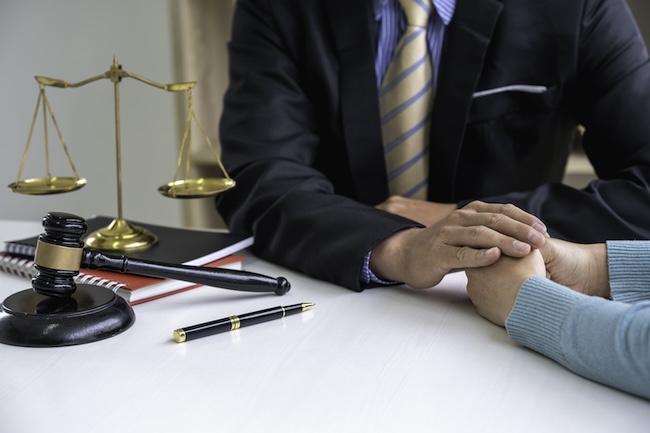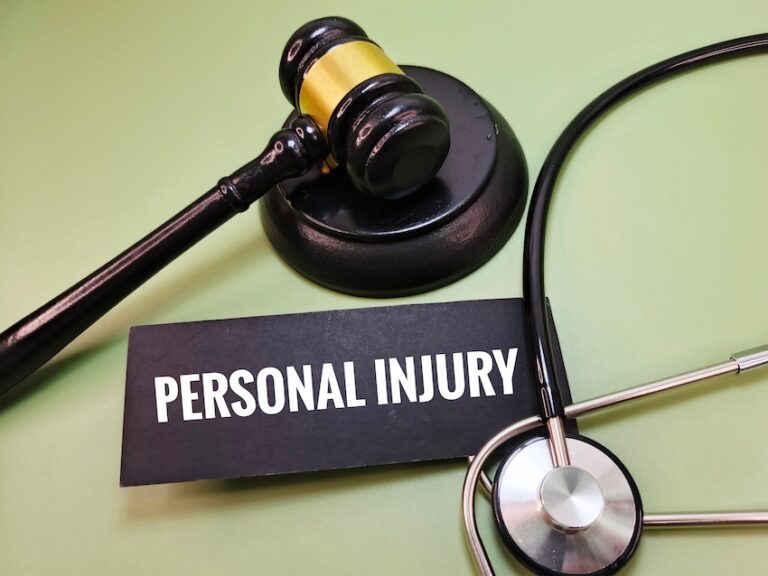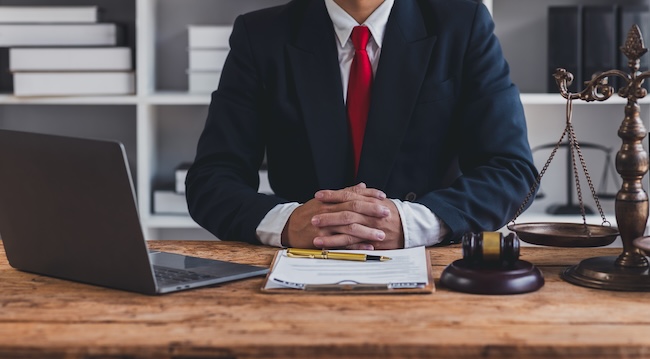At Ross Moore Law, we are dedicated to helping individuals in Georgia who have been affected by car accidents and other personal injury matters. With years of experience, we understand the challenges you face and work tirelessly to protect your rights. Our team is committed to providing personalized, compassionate legal representation, and we are here to guide you through the complexities of your case.
Accidents can happen when someone else is driving your car, and it’s important to understand how your insurance coverage will apply in these situations. Whether the driver is a friend, family member, or someone else, knowing who is responsible for the damages and how the claims process works is crucial. By understanding your car insurance policy, you can protect yourself and ensure you’re prepared if an accident occurs.
In this blog, we will explore the key aspects of insurance coverage and the claims process when someone else is driving your car and gets into an accident, using the example of how an experienced Atlanta car accident lawyer can help guide you through the process and protect your interests.
Understanding Insurance Coverage in Georgia
In Georgia, it is crucial to understand how insurance coverage works when someone else is driving your car and gets into an accident. This section explains the key aspects of car insurance and how it applies in such situations.
Minimum Insurance Requirements in Georgia
Georgia law requires every vehicle owner to carry a minimum amount of liability insurance. This includes bodily injury coverage of at least $25,000 per person and $50,000 per accident, and property damage coverage of at least $25,000. This insurance applies to both the vehicle owner and anyone who drives the car with their permission.
Primary and Secondary Insurance Coverage
In most cases, the vehicle owner’s insurance policy will serve as the primary coverage when someone else is driving. If the driver has their own insurance, it may provide secondary coverage. The secondary coverage helps cover the costs if the primary insurance doesn’t fully pay for medical bills, vehicle repairs, or property damage.
Liability Insurance and What It Covers
Liability insurance helps cover the costs of damages or injuries that occur if the person driving your car is at fault. This includes medical expenses, vehicle damage, and damage to other property. If the person driving your car causes an accident, your liability insurance will be used to cover these costs.
What Happens If Someone Else Is Driving My Car and Gets in an Accident?
If someone drives your car without your permission and gets into an accident, your insurance may not cover the damages. Most car insurance policies include an exclusion for unauthorized drivers. In this case, the driver’s insurance may be held liable, or the vehicle owner might face out-of-pocket expenses for repairs and medical bills.
Uninsured and Underinsured Motorists
If the person driving your car is involved in an accident with an uninsured driver, your uninsured motorist coverage can help pay for medical bills and vehicle damage. In Georgia, this is an optional coverage, but it is highly recommended to protect yourself from financial loss in case of an accident involving an uninsured driver.
Who is Responsible for the Accident?
Determining responsibility for an accident involving someone else driving your car depends on several factors. This section explains who may be held responsible for the accident and how insurance coverage applies.
The Vehicle Owner’s Responsibility
In Georgia, as the vehicle owner, you can be held responsible for an accident caused by the person driving your car if you gave them permission. Liability insurance from your car insurance policy typically covers the costs, but you may also face legal consequences if the driver is found negligent.
The Driver’s Responsibility
The person driving your car is primarily responsible for the accident if they are at fault. If they cause property damage or medical bills, their auto insurance may cover these expenses, depending on the type of coverage they carry. However, the driver’s insurance might not always fully cover the costs, especially if they are underinsured.
Unauthorized Drivers and Liability
If the driver does not have your permission to drive your car, they may be considered an unauthorized driver. In this case, your insurance policy might not cover the accident. The driver’s insurance could be responsible for the costs, but this depends on their coverage and whether they are at fault.
Shared Responsibility in Some Cases
In some cases, both the vehicle owner and the driver can share responsibility for the accident. This can happen if the vehicle owner failed to properly maintain the car, or if the driver was acting recklessly. In these situations, the insurance provider will assess fault and determine how costs should be split between the vehicle owner and the driver.
Insurance Coverage and Liability
When determining who is responsible for an accident, insurance coverage plays a key role. If the person driving your car is at fault, their liability insurance should cover the damages. However, if they are uninsured or underinsured, your own insurance policy might provide the necessary compensation through uninsured motorist coverage or collision coverage.
Insurance Coverage: What Happens After an Accident?
After an accident involving someone else driving your car, understanding how insurance coverage works is critical. This section explains the steps you need to take and how insurance coverage applies to damages and injuries.
Primary and Secondary Coverage
When someone else is driving your car, your auto insurance policy usually provides primary coverage. If the driver has their own car insurance policy, it may offer secondary coverage. This secondary coverage kicks in when your policy limits are exceeded. It is important to know whether the driver’s insurance will cover the accident or if your insurance provider will handle it.
Liability Coverage and Medical Bills
If the person driving your car is at fault, your liability insurance will cover the medical bills and property damage for the other party involved in the accident. However, if the other party is injured and your insurance limits are exceeded, you may be personally responsible for additional costs unless you have sufficient coverage. The driver’s insurance may also help cover costs if they are at fault.
Collision Coverage for Vehicle Damage
Collision coverage will cover the repair costs for your vehicle if the person driving your car is at fault. If the accident causes vehicle damage, your insurance policy will typically handle the repair costs, minus your deductible. In cases where the other driver is uninsured or underinsured, your own insurance company may help pay for the repairs through uninsured motorist coverage.
Uninsured and Underinsured Motorist Coverage
If the other driver does not have enough insurance or is uninsured, your uninsured motorist coverage will help cover damages. This is especially important in Georgia, where an increasing number of drivers are uninsured. Uninsured motorist coverage ensures you are not left paying out-of-pocket for damages caused by an uninsured driver.
The Claims Process After an Accident
After an accident, you will need to file a claim with your insurance company. The claims process involves providing details about the accident, damages, and medical expenses. Your insurance provider will then assess the situation, determine fault, and begin processing the claim. If there are disputes over who is at fault, you may need legal assistance to ensure your rights are protected and that you receive fair compensation.
Insurance Claims Process: How to Navigate It
Filing an insurance claim after an accident can seem complicated, but understanding the process can help you navigate it more effectively. This section outlines the key steps in filing an insurance claim when someone else is driving your car.
Report the Accident Immediately
The first step in the claims process is to report the accident to both your insurance company and the police as soon as possible. Providing timely information helps ensure that your claim is processed quickly. Your insurance provider will need details about the incident, including the location, date, and the people involved.
Gather Documentation and Evidence
To support your insurance claim, gather all necessary documentation, including the police report, medical bills, photos of the scene, and witness statements. This information will help your insurance company evaluate the extent of the damage, medical expenses, and liability. The more evidence you have, the smoother the claims process will be.
Contact Your Insurance Adjuster
After filing the claim, an insurance adjuster will be assigned to evaluate the damage to your car and assess the circumstances of the accident. The adjuster will review all the evidence, including photos, police reports, and medical records, to determine fault and the amount of compensation owed. If the person driving your car was at fault, your liability coverage will be used to pay for the other party’s damages.
Assessing the Damage and Medical Expenses
The insurance company will review the vehicle damage and medical expenses to determine the amount that will be paid out. If the damage to your car is extensive, your collision coverage may cover the repairs. If the other party is injured, your liability insurance will cover their medical bills up to your policy limits. If those limits are exceeded, you may need to negotiate with the insurance provider or pursue additional compensation.
Negotiating the Claim and Settling
Once the adjuster has assessed the damages and expenses, the insurance company will make an offer. If you feel that the offer is too low, you can negotiate with the adjuster. It is essential to understand your policy limits and the full extent of the damages before accepting a settlement. If an agreement cannot be reached, it may be beneficial to consult with an experienced car accident attorney to ensure that you receive fair compensation.
Seek Legal Help if Needed
If complications arise, such as disputes over liability or compensation, consider working with a car accident lawyer. An experienced attorney can help you navigate the claims process, negotiate with the insurance provider, and ensure that you receive the compensation you are entitled to for medical bills, vehicle repairs, and other damages.
Contact an Experienced Atlanta Car Accident Attorney Today!
If you’re facing the aftermath of an accident where someone else was driving your car, it’s important to understand your rights and how your insurance coverage applies. At Ross Moore Law, our team of experienced attorneys is here to guide you through the entire process, from navigating the complexities of your insurance policy to negotiating with insurance companies and seeking fair compensation.
Contact us at 404-445-8122 for a free claim review today!





